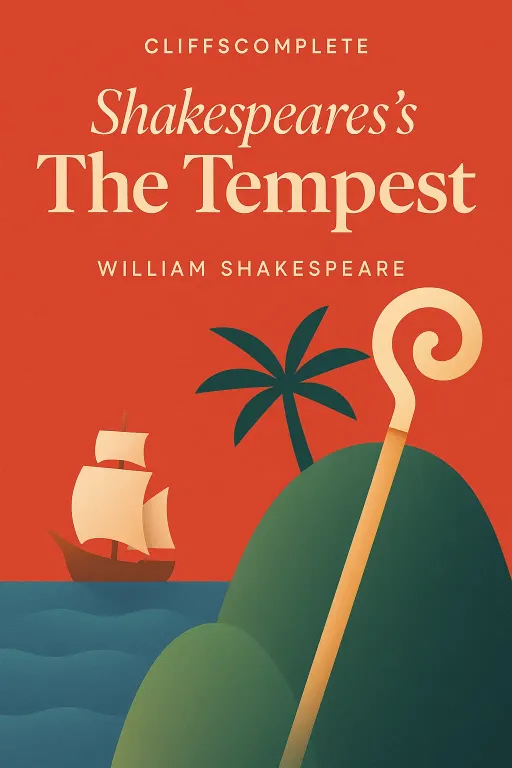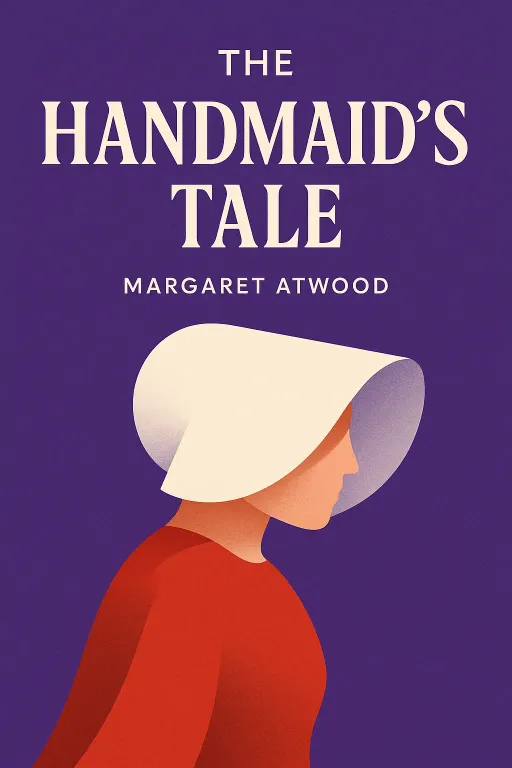
CLIFFSCOMPLETE Shakespeare’s The Tempest
10 minIntroduction
Narrator: Imagine a man, once a powerful duke, stripped of his title and cast out to sea with his young daughter. For twelve years, they are the sole human inhabitants of a remote, enchanted island. He spends this time not in despair, but in study, mastering the arcane arts until he can command spirits and conjure storms. When a ship carrying his treacherous brother and the king who helped betray him sails nearby, he sees his chance. He unleashes a magical tempest, not to kill, but to orchestrate a final, intricate act of justice and revenge. This is the gripping premise at the heart of William Shakespeare's late masterpiece, and the analysis within CliffsComplete Shakespeare’s The Tempest provides a key to unlocking the play’s deep exploration of power, colonialism, and the difficult path to forgiveness.
The World That Forged the Bard
Key Insight 1
Narrator: To understand The Tempest, one must first understand the world of its creator, William Shakespeare. Despite being a monumental figure in literature, Shakespeare remains an enigmatic personality. Born in 1564 in Stratford-upon-Avon, he likely received a classical education in Latin but did not attend university, a fact his rival Ben Jonson noted when he said Shakespeare knew "small Latin and less Greek." This background, outside the university-educated elite, perhaps fueled the competitive fire that saw him rise to prominence in the London theatre scene.
His family's own story reflects the social uncertainties of Early Modern England. His father, John Shakespeare, rose to become a high-ranking town official but later fell into mysterious financial difficulty, possibly due to his Catholic sympathies in a newly Protestant England. It was William’s success as a playwright that ultimately restored the family’s status, securing them a coat of arms. This world was one of rigid hierarchies but also surprising social mobility, a theme that echoes through his plays. The era was also a time of intellectual and religious upheaval. The old Ptolemaic view of an Earth-centered universe was giving way to new ideas, and the Protestant Reformation had created deep religious divides. These tensions—between old and new, faith and reason, order and chaos—are woven into the fabric of Shakespeare's work, providing the rich context for the magical and political conflicts on Prospero's island.
A Storm of Betrayal and a Real-Life Wreck
Key Insight 2
Narrator: The play opens with a violent storm, but the true tempest began twelve years earlier in Milan. Prospero, the rightful Duke of Milan, was a man devoted to his books and the study of the liberal arts. He became so absorbed in his "secret studies" that he entrusted the management of his state to his brother, Antonio. Seeing an opportunity, the ambitious Antonio systematically consolidated power, eventually making a deal with Alonso, the King of Naples. In exchange for tribute, Alonso provided the military force to help Antonio overthrow his own brother. One night, Prospero and his three-year-old daughter, Miranda, were forced from Milan and set adrift in a barely seaworthy boat, left to die at sea. They survived only through the secret aid of the loyal councilor Gonzalo, who supplied them with food, water, and, crucially, Prospero's most prized books on magic.
This dramatic backstory is the engine of the play, fueling Prospero's desire for justice. Interestingly, Shakespeare may have drawn inspiration from a contemporary event. In 1609, a ship called the Sea-Adventure, part of a fleet sailing to the new colony of Virginia, was wrecked in a hurricane off the coast of Bermuda. A survivor named William Strachey wrote a vivid account of the storm and their survival on the "Isle of Devils." This real-life tale of a terrifying storm and miraculous survival on a mysterious island likely circulated in London and provided Shakespeare with a powerful, contemporary touchstone for the magical shipwreck that sets his play in motion.
The Island as a Moral Mirror
Key Insight 3
Narrator: Once the shipwrecked nobles are scattered across the island, it becomes clear that the land itself acts as a mirror, reflecting the inner nature of those who walk it. The honest and optimistic Gonzalo sees the island as a paradise, a place of abundance where he could establish a perfect commonwealth with no rulers, no commerce, and no work. He imagines a utopia, a return to a golden age of innocence. In stark contrast, the cynical and treacherous Antonio and Sebastian see only a barren wasteland. Their corrupt natures prevent them from perceiving any beauty or hope.
This moral divide quickly escalates into a deadly plot. While the good-hearted Gonzalo and the grief-stricken King Alonso sleep, Antonio sees another opportunity for betrayal. Just as he once convinced Alonso to help him usurp Prospero, he now persuades Sebastian, Alonso’s brother, to murder the king and seize the throne of Naples. "What great hope have you!" he whispers, turning Sebastian’s despair into ambition. They draw their swords, ready to repeat the sins of the past, but are thwarted only by the intervention of Ariel, Prospero's spirit servant. This subplot demonstrates that the island is not just a physical location but a moral crucible, a place where characters are forced to confront their true selves, for better or for worse.
Servitude, Rebellion, and the Curse of Language
Key Insight 4
Narrator: The island’s most complex relationship is between Prospero and Caliban, the son of the witch Sycorax who once ruled there. Caliban is a figure of deep resentment. He claims the island is his by birthright and that Prospero stole it from him. Initially, Prospero and Miranda treated him with kindness and taught him their language. But after Caliban attempted to violate Miranda, Prospero enslaved him. This dynamic explores powerful themes of colonialism, oppression, and the nature of civilization. Caliban’s tragedy is perfectly captured when he spits at Prospero, "You taught me language; and my profit on’t Is, I know how to curse." Language, the supposed tool of civilization, has become for him only a vehicle for his hatred.
This desire for freedom leads Caliban into a farcical rebellion. He encounters Stephano, a drunken butler, and Trinculo, a jester, and in his naivety, mistakes Stephano’s wine for divine power. Pledging allegiance to this new "god," Caliban convinces the drunken pair to help him murder Prospero. Their plot is a pathetic and comic parody of Antonio and Sebastian’s conspiracy, driven by liquor and incompetence. Yet, it underscores the play’s central questions about power and servitude. Caliban seeks to overthrow one master only to enslave himself to another, far less worthy one, showing how the desire for freedom can be easily corrupted.
The Triumph of Forgiveness over Vengeance
Key Insight 5
Narrator: As his plan reaches its climax, Prospero has his enemies completely at his mercy. He has driven them to madness and despair with magical illusions, including a vanishing banquet and a terrifying visitation from Ariel disguised as a harpy. For a moment, it seems his revenge will be absolute. But it is his non-human servant, Ariel, who prompts a profound change of heart. Ariel reports that the nobles are penitent and that if Prospero saw them, his "affections would become tender." Prospero is moved, realizing that if a spirit can feel pity, so can he. In the play’s most pivotal moment, he declares, "The rarer action is In virtue than in vengeance."
He chooses forgiveness. He renounces his "rough magic," promising to break his staff and drown his book, and confronts his enemies not as a sorcerer, but as the Duke of Milan they wronged. He forgives his brother Antonio, reunites the grieving King Alonso with his son Ferdinand, and blesses the union between Ferdinand and Miranda, which will unite their kingdoms. He even forgives the foolish Caliban, acknowledging him with the line, "This thing of darkness I / Acknowledge mine." By relinquishing his power and his quest for revenge, Prospero achieves a far greater victory: the restoration of harmony, the healing of old wounds, and the freedom to return to the human world.
Conclusion
Narrator: Ultimately, The Tempest is a profound meditation on the nature of power. Prospero spends twelve years accumulating absolute control over his environment, only to discover that true strength lies not in the ability to command spirits and punish enemies, but in the capacity for mercy. The play’s most enduring takeaway is that forgiveness is a more powerful and transformative force than revenge.
In his final speech, the Epilogue, Prospero turns to the audience, stating his magic is gone and his fate is now in their hands. He asks not for applause, but for pardon, for the release that comes from their good will. In doing so, Shakespeare dissolves the barrier between the stage and the world, leaving us with a final, challenging question: If a man so deeply wronged can choose virtue over vengeance, what choices will we make when faced with the injustices of our own lives?









